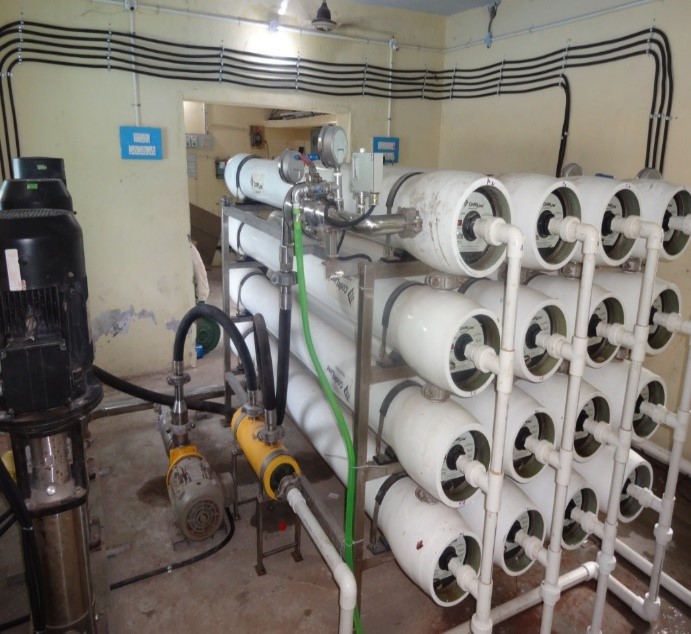The rapid growth of population has been the key feature of Indian urbanization. The urban population in India has increased around three-fold during the last six decades, which has escalated the requirement for potable water. According to a report of the Indian Ministry of Water Resources, India has 18% of the world's population with only 4% of the total global usable water resources. Another report reveals that India will move into the category of the water-stressed state by 2050. Considering this scenario, it is essential to promote our activities (research and technology development) for water treatment. Due to the variation in the quality of feed water and contaminants in this country, we have to develop need-based and region-specific technologies.
CSIR-CSMCRI is a pioneer research institute for synthetic membrane designing, manufacturing, and membrane based technologies. The degree of selectivity of a membrane depends on the either membrane pore size or membrane surface charged nature. Depending on the pore size, they can be classified as microfiltration (MF), ultrafiltration (UF), nanofiltration (NF) and reverse osmosis (RO) membranes, while membranes with acidic charge classified as cation-exchange membrane and with basic charge classified as anion exchange membrane. CSIR-CSMCRI has developed several membrane-based technologies using indigenously developed membranes for the water desalination/purification to provide safe drinking water. These technologies were also commercialized and well-tested in the remote rural areas of the country. Polymer electrolyte membranes have found diversified applications in fuel cells, storage battery and other energy devices.
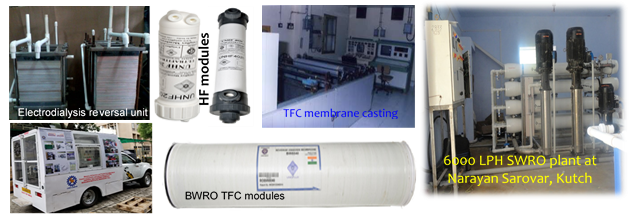
Membrane technologies for water desalination and purification:
CSIR-CSMCRI With almost half of humanity suffering insufficient access to potable water, and water scarcity for agriculture now considered to be a crisis especially for India, as well as Global. Water desalination has emerged as a feasible solution. Desalinized water is increasingly considered a source of water for agriculture, as 69% of the global water supply used for irrigation. Present freshwater resources may soon be insufficient. Clean water is fundamental requirements for economic, social and cultural development. Rapid growth of industrialization and population, requires reliable green technologies for water desalination/purification. Membrane based technologies play significant roles sustainable water desalination/purification. Membrane based technologies are already applied in industrial domain for the service of the public. Examples include desalination by reverse osmosis (RO), electrodialysis (ED), water purification by nanofiltration (NF), and ultrafiltration (UF).
Brackish water RO (BWRO) desalination:
CSIR-CSMCRI developed and commercialized technology for brackish water RO membranes for water desalination. The indigenously developed brackish water membrane performance is highly competitive with the commercially available membranes in the market.
Hollow fibre ultrafiltration membrane:
Institute has developed indigenous hollow fibre membrane manufacturing technology for water clarification and purification with very high potable water recovery (>98%).
Two-stage RO for seawater desalination:
CSIR, CSMCRI Bhavnagar has developed TFC RO membrane based two-stage RO for seawater desalination. Attractive features of the technology are: high water recovery, low capital and operating costs. Another aim of two-stage seawater desalination is to monitor performance of indigenous membranes under varying field conditions.
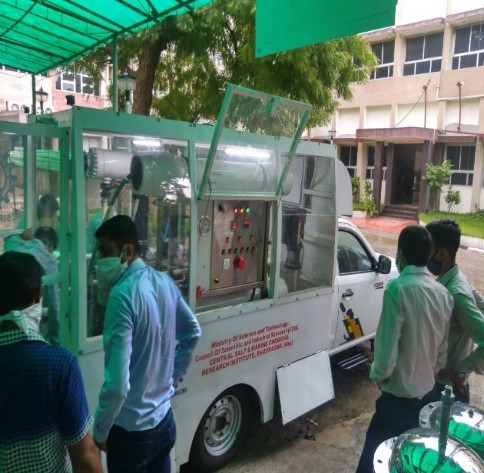
Mobile desalination van:
CSIR-CSMCRI, Bhavnagar has designed and developed a mobile unit consisting reverse osmosis (RO) & ultrafiltration (UF) plant for water desalination and purification. The key features of the mobile unit, required power to operate UF/brackish water RO (BWRO)/sea water RO (SWRO) is obtained from the van engine itself.
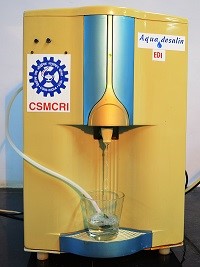
Electrodialysis (ED) based water desalination/purification unit
CSIR-CSMCRI has developed domestic ED system for water desalination and producing mineral balanced nutritious drinking water with 15 -20 LPH output.
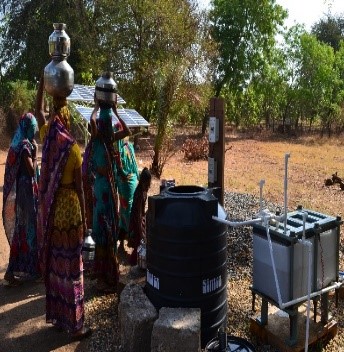
Solar powered ED unit for brackish water desalination
ED offers unique advantages such as easy interfacing with solar power, absence of moving parts and control over the product water total dissolved solid (TDS). CSIR- CSMCRI has excellent expertise on solar energy and indigenous ion-exchange membranes and developed solar powered ED system for potable water.
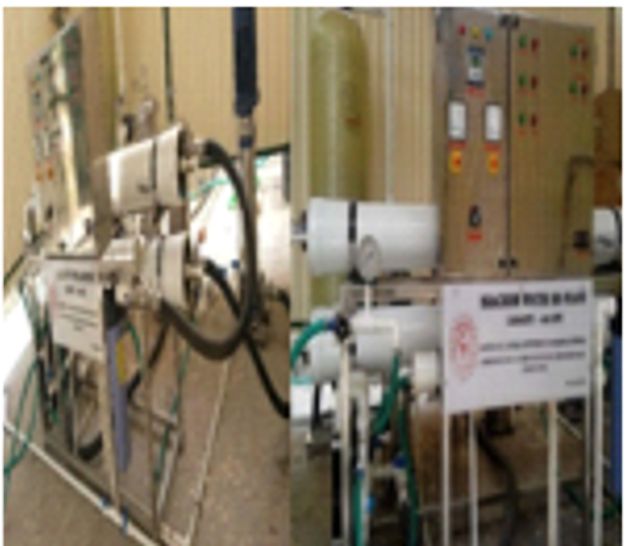
Thin film composite (TFC) reverse osmosis
CSIR-CSMCRI has developed indigenous second-generation polyamide TFC membranes, and benchmarked the membranes/modules with international membranes
